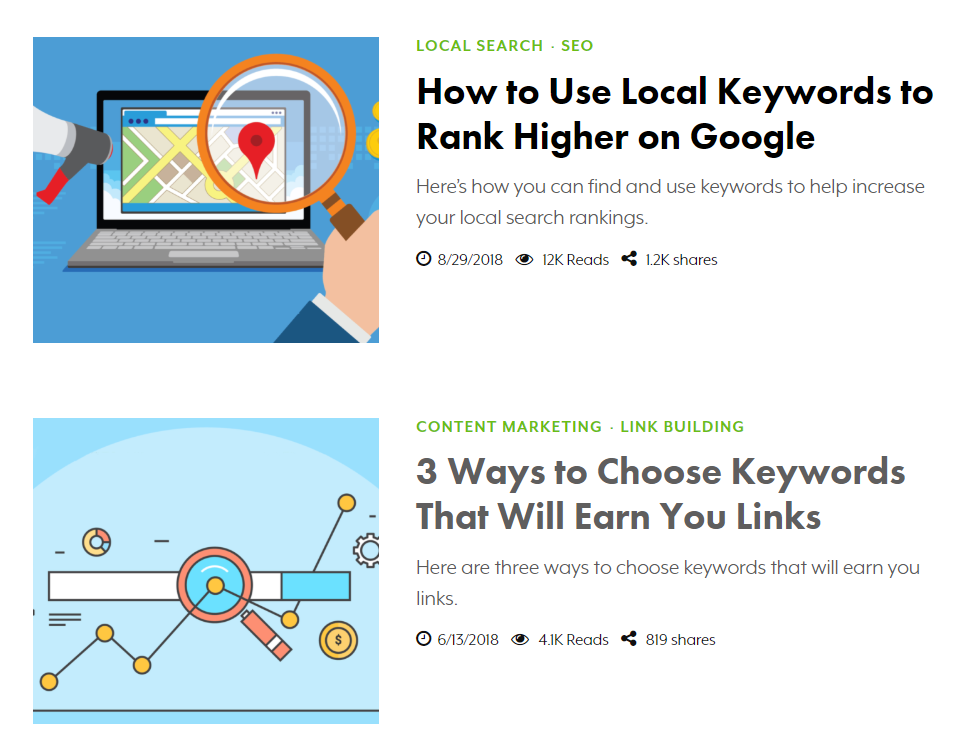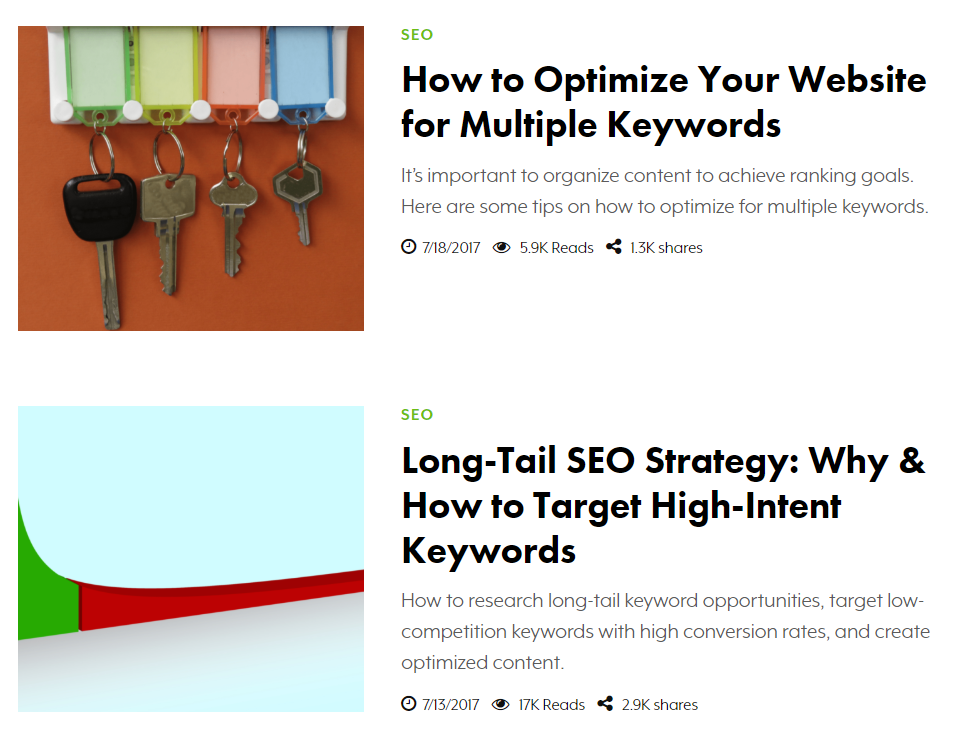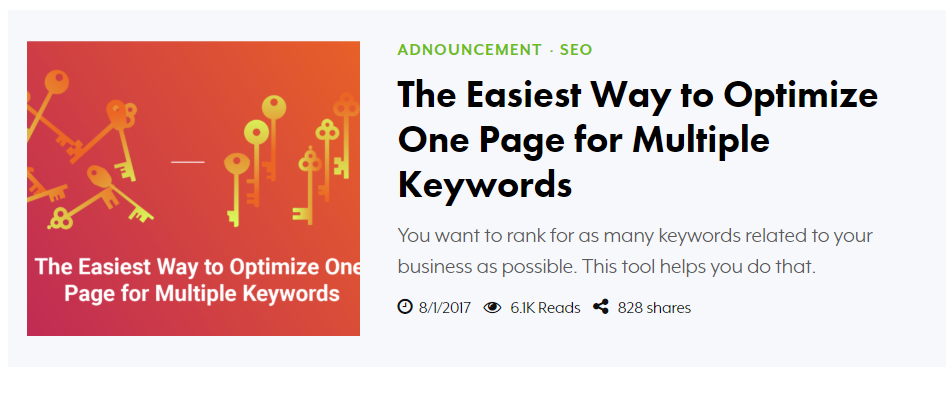Ah, keyword research. It’s a topic that every SEO website seems to write about sooner or later.
One which has no shortage of information on why it’s important, how to do it, and what it’s used for.
But one thing we’ve noticed is that, for all the “How-to” articles on the web, there aren’t many that actually explain – at least not satisfactorily – how you implement it successfully.
So what can we do about this lack of information?
Well, we wrote a whole post about it:
Keyword Research Fundamentals
For simplicity’s sake, we’ll assume you have an idea of what keyword research is. We will also assume you’ve read up on the basics of SEO as well.
But here’s a quick primer to jog your memory:
Keyword research is the process of digging into search queries on platforms such as Google or Bing in order to assess what people are searching for, how they are searching for it and how much interest there is in the topic you are researching.
We’ll spare you the typical rundown of tools, technologies and so on, but needless to say, you won’t struggle to find a million and one posts on it.
A Gap in the Research

Every SEO, their mother, their dog, their dog’s mother, and so on, has written a piece on keyword research by now.
They usually say the same thing:
“It’s about search intent not search volume!”
“Focus on the long-tail keywords!”
“Keywords are dead long live keywords!”
Or something like that…



… Case and point.
We’re not saying nobody has anything new to say, of course, but a lot of the same topics come up over and over, with fresh takes sure, but it’s the same old song and dance for the most part.
But something that not a lot of SEOs seem to write about is possibly the most important part of keyword research:
How to actually use all that data you collected.
Understanding Keywords in Modern SEO
It used to be the case that keywords were everything in SEO.
The exact positioning and density of your keywords would determine your ranking.
You still get some folks recommending you strategically place your keyphrases in header tags and with a certain frequency. Indeed, some popular SEO plugins who will go unnamed, base a significant part of your SEO score on how you use keyphrases.
But here’s the thing.
That hasn’t mattered for years.
And we’re not talking a few years, like back in 2015 or something.
No, we’re talking about a system that’s been outdated for over a decade.
So does that mean keywords have no value anymore?
Well, no, otherwise this post would be titled something pithy like “Keywords are dead”.
But what value do they have?
Market Research for SEOs
The most common data SEOs collect during keyword research is search volume, “competition”, and search intent.
This information tells you quite a bit about what your preferred audience are interested in. If, for example, you are a travel agency wondering what content your potential customers are interested in, finding these queries is crucial.

As we can see above, there are about 1300 monthly queries for “temple tours bangkok” or a very similar search. This doesn’t mean your hypothetical travel agency should optimize for an exact match phrase, but it does tell you that there are a lot of people interested in just such a tour.
So what can you do with this data?
Crafting a Strategy
Organic search real estate is at an extreme premium.
Google continues to push organic results further and further down SERPs (search engine results pages). Rich snippets, featured snippets, paid ads and so much more make it harder and harder to rise to the top.
At the same time, there are very few keyphrases that a new company could ever hope to rank for.
It’s an unfortunate reality of SEO, but unless you have an established site with a rich backlink profile and a preexisting brand, you’re very unlikely to rank for anything.
And I mean anything. Longtail keywords? Not a chance. Exact matches? Nope.
Your own brand name?
Maybe, if you’re not unfortunate enough to have a completely unrelated brand with the same (or similar) company name as you.
But keyword data still matters, if only for one major reason…
You know what people want, and if you know that then you have a pretty powerful weapon at your disposal.
Because the reality is that whatever’s ranking at the top for your desired keywords isn’t really all that great. Or it doesn’t have the same unique perspective that you can bring to it.
What that keyword research tells you is what people want to read. And it tells you also what you should be writing.
But if you’re never going to rank, what’s the point? What can you do with this information?
Crafting Content
Stop me if you’ve heard this before:
“Content is king.”
“You need to write GREAT content.”
“Your content should be comprehensive and better than anything else out there.”
But here’s the thing – that’s all true!
You know what people want to read, you know what you need to write. But you also know you are almost certainly not going to rank for any keywords unless your brand has a pretty significant link profile already.
In some ways, though, that can be pretty liberating.
You’re no longer bound to the constraints of flawless technical SEO. You can start to focus on the user experience. You can actually write that great content.
No keyword stuffed headings. No bullet-point lists of exact-match keyphrases that you shamelessly insert into the introduction of your post.
No more being a slave to the “Updated for 20XX” model of titles.




Don’t get me wrong. These titles work. But they’re really annoying to see over and over.
The point of all of this is to reiterate just how important it is…
… To craft great content that people want to read.
I know, very original, right?
But in all seriousness, it’s incredibly important – if content is a strategy you plan to utilize – to write for humans, not for Google.
Until you’ve made a name for yourself, and until you’ve earned links and domain authority*, you’re not going to rank in search for anything at all.
So you’ll need to write something truly standout, based on market research (keyword research) optimized for usability, readability and interest.
And then you have to get it in front of people.
*Note that domain authority isn’t a ranking factor according to Google, it’s just an estimate used by SEO tools to guess how easy it will be to rank your website. Most websites will be very low, so you will face a serious uphill battle to rank for anything.
Distributing Your Content
This is where it all comes together. You’ve done extensive keyword research. Then you took that data and turned it into an amazing strategy. Finally, you actually wrote the content itself.
And it’s amazing…
… But now what?
We already know it’s not going to rank anytime soon, so what’s a startup to do?
That’s where the oldest SEO tools in the book come in:
Linkbuilding and content distribution.
Yeah, you didn’t think you’d read an SEO post without linkbuilding coming up, did you?
Links continue to be the factor that makes-or-breaks SEO. Earning links from authoritative sites is the most important way to break out of your low-authority slump. You can’t rank now, but maybe you can someday.
Oh, and there’s also that little thing about links sending traffic to your site. Traffic that you otherwise never would have had. Traffic that may be high-intent and interested in converting.
Linkbuilding outreach helps you rank, it drives traffic, and it’s the most important step you can make before you stand a chance in organic search.
We’ve already poured accolades on the topic and the magical power that just one linkbuilding email can have.
Reaching out, distributing your content, and putting it in front of users are crucial for growing your readership. It’s also the most Google-friendly strategy for SEO. The search giant emphasizes user-experience above all else, so crafting useful content that makes the internet a better place is a win-win.
Building a Successful Strategy
Research and strategy are essential tools for any digital marketing initiative.
Whether you’re working on a content campaign or Facebook marketing campaign, you need to know the lay of the land before you start.
We don’t go into anything blind, for ourselves or our clients. Research is critical to every project we do. Without it, we wouldn’t be able to make strategic decisions or advise our clients on the best solution for their problems.
Think critically about your ongoing projects, and make sure you take the same careful approach – knowledge is power after all, so prepare yourself with the most powerful tools available.












Leave a Reply